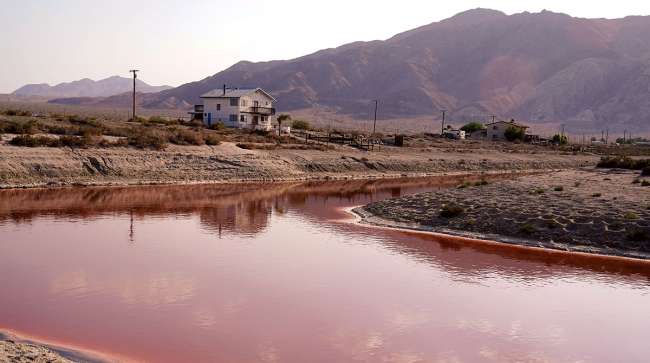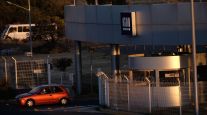Associated Press
Biden Wants to Cut Into China’s Electric Battery Dominance

[Stay on top of transportation news: Get TTNews in your inbox.]
SACRAMENTO, Calif. — President Joe Biden highlighted his efforts to counter China’s dominance of the electric battery market on Feb. 22 as he touted domestic efforts to mine and process lithium and rare metals necessary to create the technology that powers cars, electronics, wind turbines and more.
The president announced his administration is giving $35 million to MP Materials, a company that mines rare earth metals near the Nevada border in Southern California. The funding will boost MP’s ability to process the materials domestically for use in U.S. manufacturing.
He also touted efforts to extract lithium from geothermal brine found around California’s Salton Sea. Biden said U.S. demand for such materials will grow by 400% to 600% over the next several decades.
Big news: MP has received a $35m @DeptofDefense award to develop a commercial processing facility for heavy rare earths at Mountain Pass!
CEO James Litinsky will join @POTUS, @SecGranholm, @GavinNewsom & more at 3:30pm ET to announce.
Tune in $MP https://t.co/RRZe91hUzW — MP Materials (@MPMaterials) February 22, 2022
“We can’t build a future that’s made in America if we ourselves are dependent on China for the materials that power the products of today and tomorrow,” Biden said. “And this is not anti-China, or anti-anything else. It’s pro-America.”
Biden spoke virtually from Washington with a group of California business and government leaders, including Gov. Gavin Newsom.
Las Vegas-based MP Materials runs the Mountain Pass mine and processing facility that is the only one of its kind in North America. It extracts rare earth metals and produces a concentrate that’s exported for use in other countries. Such metals are used to produce magnets necessary for batteries in electric cars and many other items.
The federal money will help the company create a processing facility for “heavy” rare earth metals, and it follows a $10 million award last year for “light” rare earth metals. The company is spending $700 million of its own money for improving processing and creating a manufacturing facility in Texas to produce magnets. The company has a deal with General Motors, said Matt Sloustcher, MP Materials’ senior vice president for policy and communications.
“My team is committed to bringing this supply chain home,” company CEO Jim Litinsky told Biden on the call.
Elsewhere, Biden touted lithium production efforts in California. Newsom has called the state the Saudi Arabia of lithium, a reference to that country’s abundance of oil.
Newsom said lithium extraction in California has the potential to boost national security by improving domestic supply chains and accelerating the transition away from fossil fuels in the transportation sector. Biden earlier noted the nation could produce a half-million electric cars per year by 2025.
“If it’s as big as it appears to be, this is a game-changer in terms of our efforts to transition to low-carbon green growth and to radically change the way we produce and consume energy,” Newsom said.
Warren Buffett’s Berkshire Hathaway Energy is among several companies working on extracting lithium from geothermal brine found around the Salton Sea, California’s largest lake. Berkshire Hathaway has run geothermal plants around the lake for decades, but the lithium has historically been pumped back under ground with the brine after it’s used to generate power.
With state and federal investments of about $20 million, the company is working on projects to demonstrate it can extract the lithium and convert it to battery-grade in a way that’s commercially viable, said Alicia Knapp, president of BHE Renewables.
Want more news? Listen to today's daily briefing above or go here for more info
The Newsom administration said it wants to ensure economic benefits from lithium extraction go back to the areas around the Salton Sea, which have been hit by economic hardship and environmental degradation as the lake dries up because of dwindling supplies from the Colorado River.
Silvia Paz, chairwoman of the state-created Lithium Valley Commission, told Biden communities in the region have seen “unfilled promises” before. She called for investments in career development and education for people in the region as well as improvements to basic services and environmental cleanup.
“We want to be at the table and help you understand what it means for us to have a prosperous economy,” she said.



